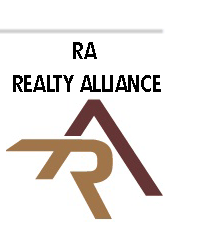|
Glossary of Real Estate terms - C click on the letter
CMA - Comparative Market Analysis A home evaluation based on properties that have sold recently in the neighbourhood similar to the property being priced. There is also a comparison with similar properties actively listed and those that were listed, but failed to sell (expiries). CMHC - Canada Mortgage and Housing Corporation A Crown Corporation that insures High Ratio (over 80% of the appraised value) mortgages against default. Clear Title A title that is free of liens or legal questions as to ownership of the property. Closing The act of completing the registration of the Land Transfer to the Purchaser in the Land Title Office, obtaining Mortgage Funds, if any, and Paying out the Balance of Sale Proceeds to the Vendor. Closing Costs Expenses over and above the purchase price for buying and selling a property. Closing Date The date upon which the closing is to take place. Commission The fee paid by the Sellers for marketing and handling the sale of their properties. The Competition Act of BC states that there is no set or standard commission rate to be charged by a Real Estate Company. The commission rate that our company, Royal Pacific Realty, charges is 7% on the 1st $100,000 and 3.5% on the balance of the sale price. For example if you were to sell your property for $700,000, the commission would be $28,000.00. Since this is a service, 5% GST or $1,400.00 is also applicable. So the total commission + 5% GST payable by the Seller on a sale of $700,000.00 would be $29,400.00. The commission paid to our company, TMG The Mortgage Group, for arranging your mortgage is paid for and absorbed by the lender (the bank) and does not affect the excellent rates we can offer. Common Areas Those portions of a building, land, and amenities owned (or managed) by a Strata corporation that are used by all of the unit owners, who share in the common expenses of their operation and maintenance. Common areas include swimming pools, tennis courts, and other recreational facilities, as well as common corridors of buildings, parking areas, means of ingress and egress, etc. Each strata unit is responsible for paying their share of the expenses to maintain the property and common areas, in proportion to the size of unit. Comparable Sales Recent sales of similar properties in nearby areas and used to help determine the market value of a property. Also referred to as "comps." Condominium A type of ownership in real property where all of the owners own the property, common areas and buildings together, with the exception of the interior of the unit to which they have title. Often mistakenly referred to as a type of construction or development, it actually refers to the type of ownership. Contract of Purchase and Sale he agreement entered into between Buyer and Seller which sets out the Purchase Price, the Property to be transferred, the Particulars as to date and terms, and the Parties to the transaction. Conventional Mortgage A mortgage loan where the mortgage loan does not exceed 80% of the appraised value of the property and is therefore not required to be insured by CMHC or Genworth. Convertibility The ability to change a loan from a variable rate schedule to a fixed rate. Conveyance The term used to describe the process of transferring the seller's title to a property to a buyer and includes all the steps necessary to complete that transfer. A lawyer or notary usually executes this process. Cooperative (Co-op) A type of multiple ownership in which the residents of a multiunit housing complex own shares in the cooperative corporation that owns the property, giving each resident the right to occupy a specific apartment or unit. Cost of Borrowing The annual cost of credit over the life of a loan, including interest, service charges, brokerage, loan fees, CMHC or other mortgage insurance. Counter offer An offer made by the seller back to the buyer altering one or several terms and/or conditions of the offer as originally written. A counter offer may in turn be countered back by the buyer. This process continues until both seller and buyer agrees to all terms and conditions. Covenants Usually called Restrictive Covenants because they restrict the use of real property. Often required as part of the subdivision process by the approving authority, these are charges registered against the title, and binding upon all subsequent owners. These covenants govern how a property may be used. The most common are Covenants for in favour of the Ministries of Health, Environment or Highways. Credit Report A report of an individual's credit history prepared by a credit bureau and used by a lender in determining a loan applicant's creditworthiness. |
Stan Shawn REALTOR® For Vancouver |


